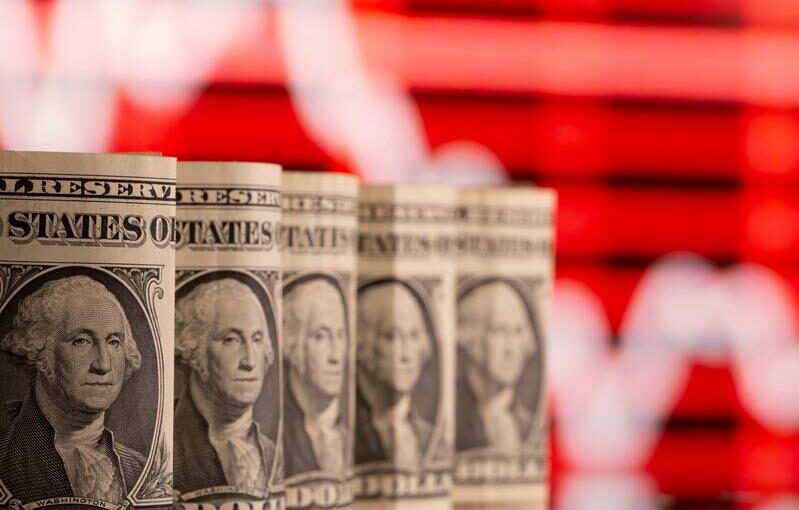LONDON (Reuters) – The dollar rose to multi-month highs against the euro, yen and Swiss franc on Friday after Federal Reserve Chair Jerome Powell expressed no concern about a recent sell-off in bonds and stuck to his stance of keeping interest rates low for a long time.
At a Wall Street Journal forum on Thursday, Powell said the sell-off in Treasuries was not “disorderly” or likely to push long-term rates so high the Fed might have to intervene more forcefully, re-igniting a sell-off in Treasuries.
He also reiterated a commitment to maintain ultra-easy monetary policy until the economy is “very far along the road to recovery.”
“The U.S. dollar rose sharply higher post-Powell comments (as) many in the market I sense were looking for stronger rhetoric from the Fed to put a break on further rallies in yields,” said Neil Jones, head of FX sales at Mizuho Bank. “We didn’t get it and the dollar is pushing higher across the board on expectations of further increases in U.S. yields.”
The euro slipped 0.4% to a three-month low of $1.19255 following a 0.7% slump overnight.
The dollar reached a nine-month high of 108.45 yen , gaining 0.5% against the Japanese currency.
Japanese Finance Minister Taro Aso declined to comment on the yen’s decline when asked about how the depreciation would affect the economy.
“With the BOJ’s (Governor) Kuroda saying that the BOJ has no need to change its yield guidance, the yen is, along with the Swiss franc, taking the brunt of the dollar’s yield-fuelled recovery,” said Kit Juckes, chief FX strategist at Societe Generale. “Both look cheap, but the yen in particularly isn’t cheap enough yet”.
The dollar index hit a three-month high and last stood at 91.960 in early London deals after gaining 0.7% on Thursday.
The dollar’s gains came as the benchmark 10-year Treasury yield jumped back above 1.5%, rising as high as 1.55% in European trade. Last week, it soared to a one-year peak of 1.614%.
Impending U.S. fiscal stimulus is adding fuel to expectations of higher inflation, as the accelerating roll-out of COVID-19 vaccines boosts confidence in an economic recovery.
Riskier currencies, including the Australian and New Zealand dollars, slid along with stocks as investor sentiment again turned sour.
“Once the bond rout comes to an end, once the volatility fades away, the commodity currencies (the Aussie and the kiwi) are going to be able to climb back up because commodity prices aren’t falling,” said Joseph Capurso at Commonwealth Bank of Australia.
The Aussie weakened 0.6% to $0.7673, a three-week low, extending Thursday’s 0.7% drop. The kiwi fell 0.6% to $0.7140.
In the cryptocurrency market, bitcoin fell 3.7% to $46,571. Ether dropped 5.52% to $1,453.29.
Source: Read Full Article
